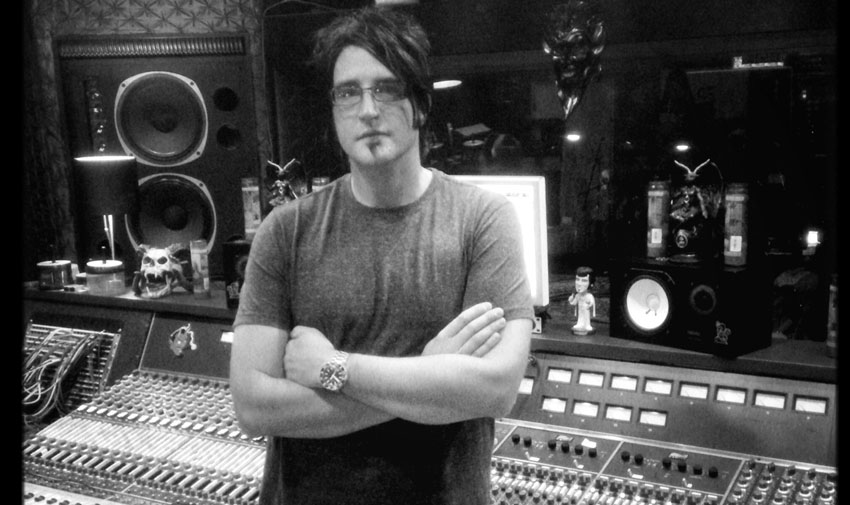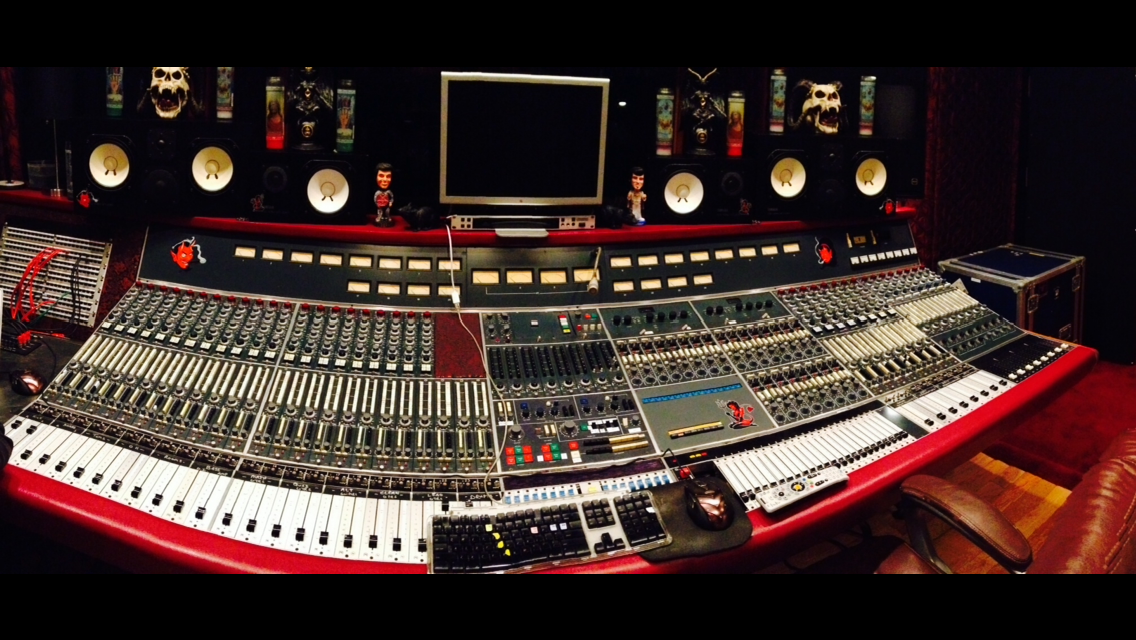Michael 'Elvis' Baskette: how to break into music production
Essential tips from the veteran rock and metal producer

Michael 'Elvis' Baskette on how to break into music production

Desk
PRODUCTION EXPO 2013: Michael 'Elvis' Baskette does it all. He's a producer, engineer, mixer and songwriter. He owns his own studio - Barbarosa in Orlando, Florida - and he's worked with a veritable 'who's who' of rock royalty including Incubus, Limp Bizkit, Puddle of Mudd and Iggy Pop.
Baskette puts his success in the industry firmly down to his versatility and solid work ethic, not to mention the countless hours he's put in assisting the role call of heavyweight producers who've taken him under their wing in the past.
Are you just starting out? Yep, he's been in those shoes too (and worked them until the bottoms fell out). So what better man to teach you a thing or two about what it takes to get to the top?
Your CV must weigh a tonne! How do you get work in the industry?
"Well, once you get the break - and that's the big question mark - it's a case of continuously delivering. Consistency is the key. If you want the work to keep coming in, make every single thing you do count regardless of a budget.
"Consistency is the key… There is no disclaimer on the back of a record that says, 'We only had two weeks to do this record'"
"When you go into a record, you've signed on to give it your best. There is no disclaimer on the back of the record that says, 'We only had two weeks to do this record,' or, 'We only had $30,000 to make it'. Excuses go out the door. When you do that, and keep everything at a high level, you'll get more work."
Breaking into the business has to be the hardest step. What's the best way to go about it?
Get the MusicRadar Newsletter
Want all the hottest music and gear news, reviews, deals, features and more, direct to your inbox? Sign up here.
"At this point in time the game has changed so much. When I started out, relatively young, there was a really organised studio system. You would come in and start as a runner, then you would do some engineering, and then go up through the ranks. Now it's completely different.
"My top tip for people coming in now would be learn as much about music as you can and LISTEN. TO. EVERYTHING. Use your ears. Don't be pigeonholed into one style.
"The most important thing you can understand is that technology is a tool. It's awesome, but the fundamentals are being lost now,because the studio system has essentially fallen apart. Those fundamentals have gone away and everyone with a computer thinks they're a producer."
One of Baskette's late-90s projects was engineering Incubus' Make Yourself
Paying your dues is part and parcel of working in the music industry. What was your slog up the ladder like?
"I'm really grateful for my time at NRG Recording Studios in Hollywood. I was working there at night under the tutelage of Jay Baumgardner [Ugly Kid Joe, Helmet] while playing in a band full time and going to college.
"My engineering chops just came from people doing that for me when I was in a band and I couldn't stand it, so I decided to do it all myself. I got my own gear, financed by many, many credit cards that took years to pay off. I bought my own tape machine and my own board and started working through that."
You run your own place now, Studio Barbarosa. What kind of lessons are you teaching your interns?
"I like to open the door to these new guys, because I've been there before"
"I try and give them the help I got. The industry isn't as regimented as when I first came up. I like to open the door to these new guys because I've been there before. I say, 'Look, you're allowed to do everything until you screw up. Then I pull you back'.
"It's like, when you first start at a studio you're normally not allowed to be in a control room to see what's going on. But if a guy comes to me and gets everything right - as far as setting up, cleaning up, taking care of clients and making sure everyone's happy - if they do that and I see they're an honourable, hard working individual, I give them access to the control room pretty quickly.
"Not fundamental tasks that are going to affect the record, but just being in there to watch. Then I give them little things to work on, even if it's not going to be used for the record. It's just so that they can get their chops worked up.
"The worst thing is to get a guy in and let him bust his ass and get nothing from the experience except how to clean the toilet before they leave. I suffered through that."
Baskette has produced every Alter Bridge record since 2007's Blackbird
Is interning at a studio the best education a young producer, mixer or engineer can get?
"Absolutely. My advice would be to get an internship and find the best commercial facility still functioning. Go in there and learn from the greats. The most education I ever got was by working as an assistant, and then as an engineer, alongside the best producers in the game today. I learned everything about what to do and what not to do from these guys. It was a blessing.
"Remember, regardless of what you think you know, you still have to start from the bottom"
"NRG Recording Studios in the 90s was just an awesome place to be. I got to work with some killer guys like Brendan O'Brien and Rick Rubin. We had our share of killer guys. I have to really thank Jay Baumgardner at NRG - he really taught me everything about a Neve console."
Any parting words of advice?
"There are kids who spend thousands of dollars on their education to get into this industry. Just remember, regardless of what you think you know, you still have to start from the bottom. Always watch and learn from the people above you."
Interview by Roy Spencer
“I’m looking forward to breaking it in on stage”: Mustard will be headlining at Coachella tonight with a very exclusive Native Instruments Maschine MK3, and there’s custom yellow Kontrol S49 MIDI keyboard, too
“Turns out they weigh more than I thought... #tornthisway”: Mark Ronson injures himself trying to move a stage monitor









